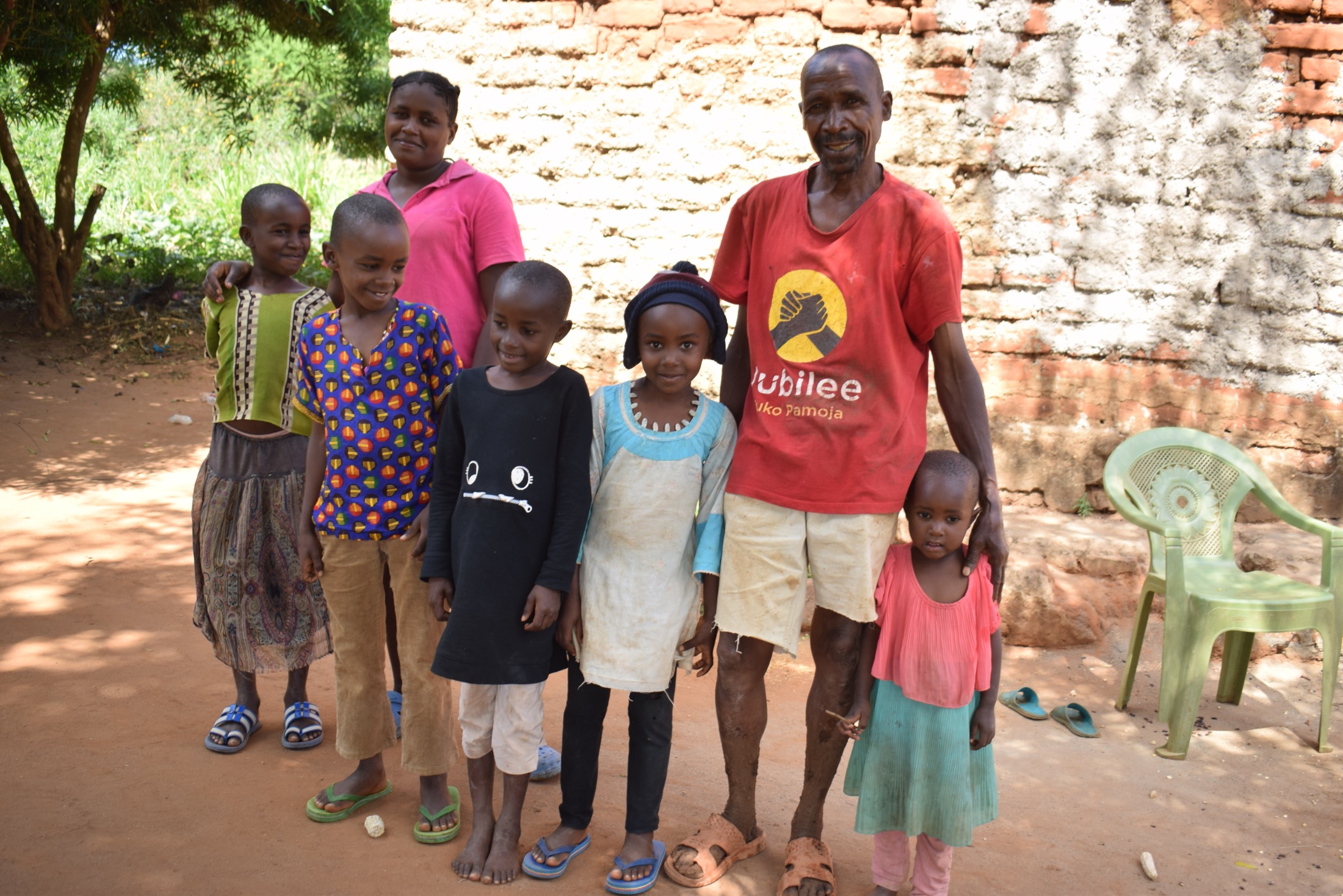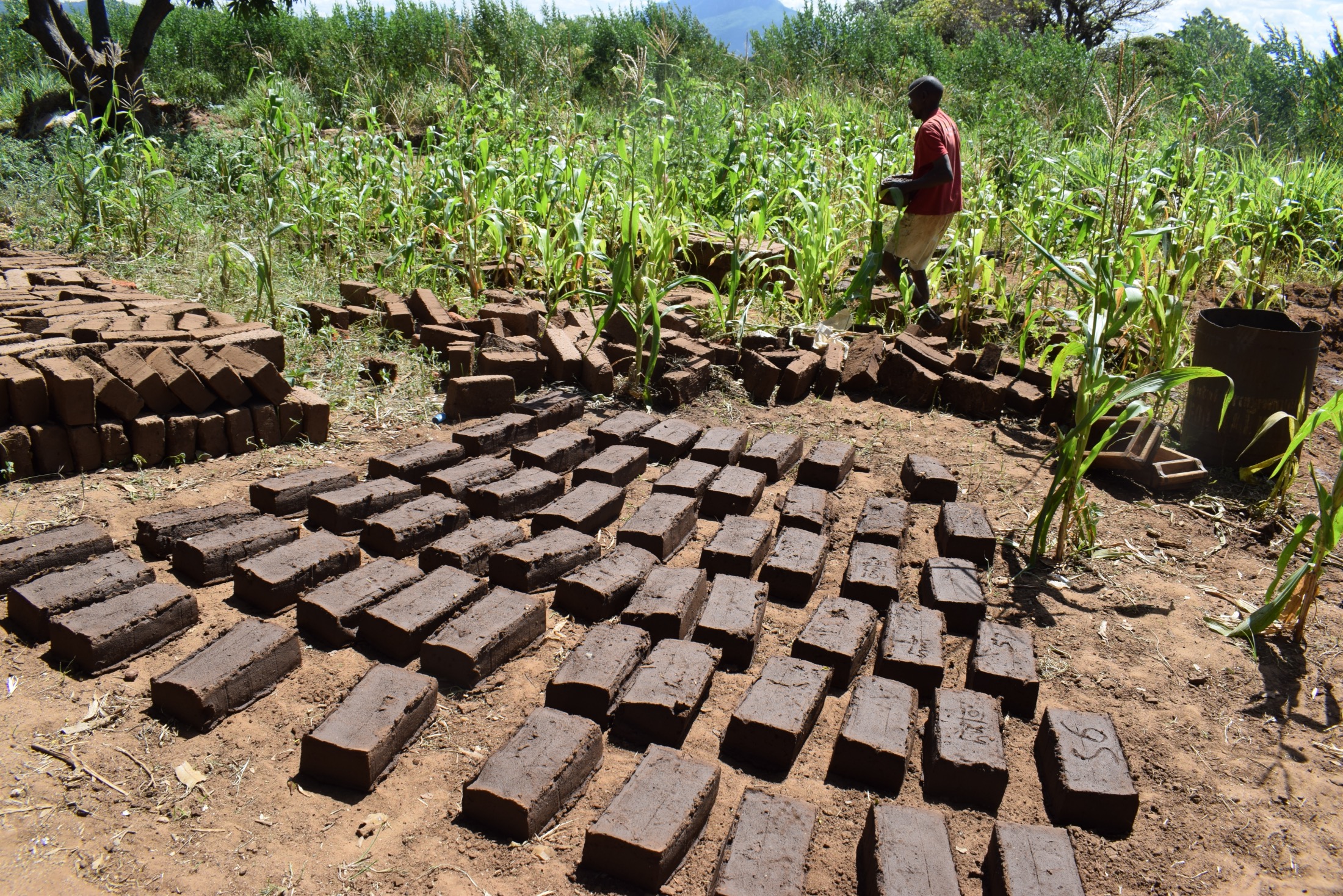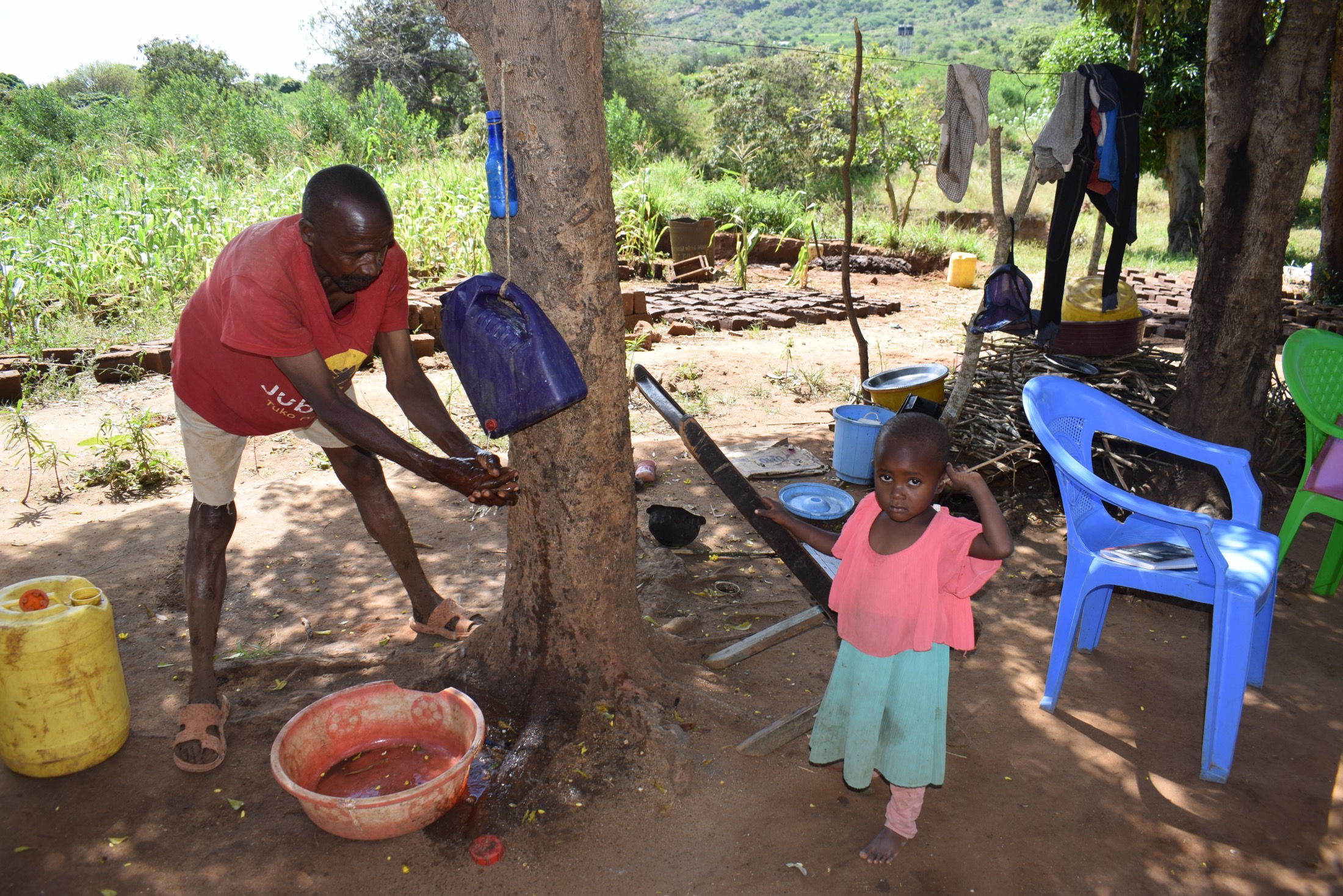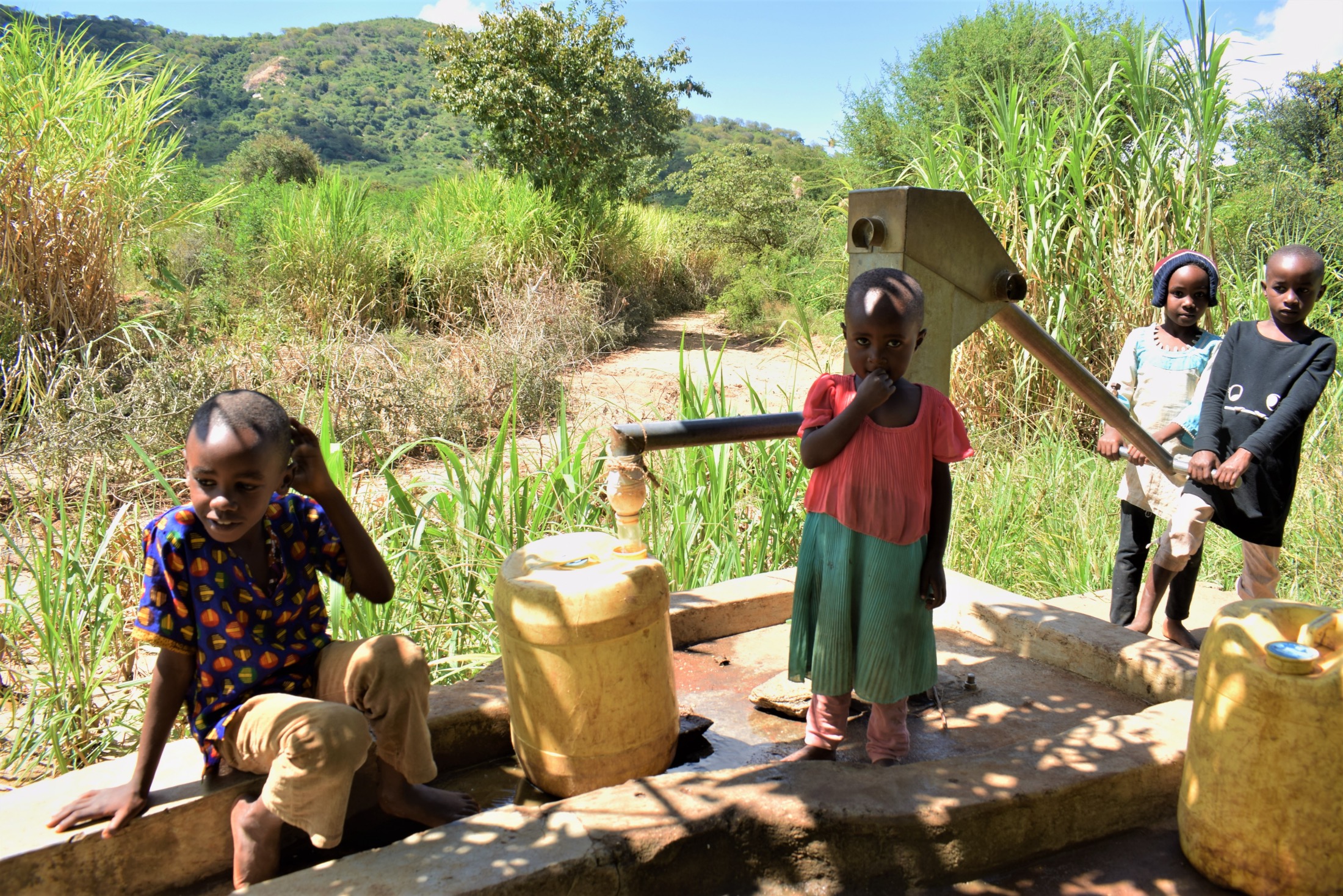Through Their Eyes: COVID-19 Chronicles with Edward Kimeu
This post is part of a series by The Water Project meant to highlight the perspectives and experiences of the people we serve and how the COVID-19 pandemic is impacting them. We invite you to read more of their stories here.
Our team recently visited Twone Mbee Muselele Community, Kenya to conduct a COVID-19 prevention training and monitor their water point. Shortly after, we returned to check in on the community, offer a COVID-19 refresher training, and ask how the pandemic is affecting their lives.

Edward and his family.
It was during this most recent visit that Edward Kimeu shared his story of how the coronavirus is impacting his life.
Our staff met Edward outside his home to conduct the interview. Both our team and Edward observed physical distancing and other precautions throughout the visit to ensure their health and safety. The following is Edward’s story, in his own words.
How has COVID-19 impacted your family?
“Before the onset of the virus, I used to work as a cook in a nearby school. But my day job was stopped in March after the virus arrived in Kenya. I have been staying at home with my children as we wait for this pandemic to cool down. It has been a very tough time because we are not being paid; hence no income is flowing in. We are also uncertain about the extent of this ‘lockdown’ and how long it will last as the food we had in our storage is not enough.”

Edward makes bricks.
What steps is Kenya taking to prevent the spread of the virus?
“The government has been promoting safety measures that should be practiced such as wearing masks at all times when going to public places, handwashing using soap and clean water, and social distancing/avoiding crowded places. All service providers were recommended to have handwashing stations set up outside their shops, while the rest of the citizens were told to have them at their homes to ensure everyone washes their hands.”
Since the outbreak of COVID-19 in Kenya, has fetching water changed for you because of restrictions, new rules, or your concerns about the virus?
“Getting water has not changed per se, because the water point is directly outside my home. However, when other community members come to fetch water, they wash their hands before and after using the hand pump. There is no crowding at the water point as the locals were used to before; now we have put a policy where you leave after fetching to allow enough time for another person without posing the risk of contracting the virus.”

Edward washes his hands at home.
How has having a clean water point helped you through the pandemic so far?
“Having a well and sand dam project has helped us in getting water for use at our homes. We fetch water from the well daily to use for drinking, cooking, cleaning, watering our vegetable garden/tree nursery, and for brick making. With easy access to water, life is easier and manageable during this pandemic.”

Kids fetch water at the well, before physical distancing.
How has getting food been at this time?
“We had a bumper harvest in the previous season, and we stored abundant food, but it has been running out very fast. Currently, our store has food that can last us for only 2 weeks. Without any income flow, we plan to use the water from the well to plant some vegetables at least to ensure my children do not sleep hungry.”
Home More Like ThisTweet